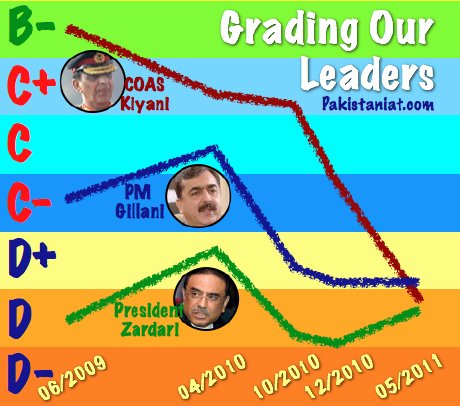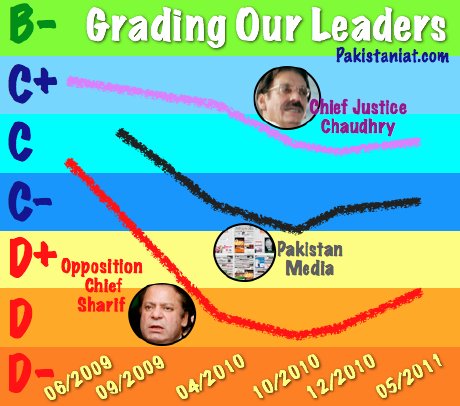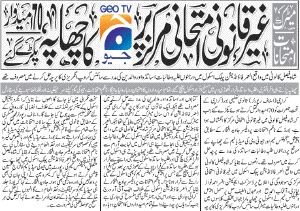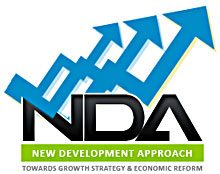Adil Najam


 Have you ever wondered why students, specially Pakistani students, cheat. A news reporter from The Express Tribune has finally cracked the mystery. ‘We cheat only to pass our exams’ screams the headline. In case you did not already know, students cheat only because they need to pass their exams, otherwise they would never do such a thing!
Have you ever wondered why students, specially Pakistani students, cheat. A news reporter from The Express Tribune has finally cracked the mystery. ‘We cheat only to pass our exams’ screams the headline. In case you did not already know, students cheat only because they need to pass their exams, otherwise they would never do such a thing!
One should, of course, not be unfair to the newspaper reporter. The headline is in quotes, after all. However, after reading all the surreal student quotes in the story one is left dumbfounded. Supposedly, the students in their responses were serious about what they were saying in trying to explain and justify why they ‘have to’ cheat.
According to the students interviewed in the story, the fault lies with everyone and everything except themselves: the pesky issue of having to pass exams; the fact that its easier to cheat than to study; teachers because they do not do their job; private and government schools disparity; studies are too ‘complicated’. The solutions suggested are even more wonderful: lets abolish grades and just do pass/fail; lets instill fear of God in people. Amazing stuff from the custodians of our future!
Adil Najam
 On Saturday, the National Economic Council approved the New Growth Framework based on the New Development Approach developed by the Planning Commission of Pakistan.We at ATP have been following and encouraging a discussion on the elements of the new growth framework over the last many months and prior to this have carried six posts on the subject: here and here and here and here and here and here.
On Saturday, the National Economic Council approved the New Growth Framework based on the New Development Approach developed by the Planning Commission of Pakistan.We at ATP have been following and encouraging a discussion on the elements of the new growth framework over the last many months and prior to this have carried six posts on the subject: here and here and here and here and here and here.
The latest draft of the strategy is available here and we hope that the final draft – the one approved – will soon also be available on the Planning Commission website. We would, again, encourage our readers to comment on, discuss and debate its elements. One can quibble with the details of the content – one always can in a document like this – but it is better to quibble than to remain silent. In many ways as important as the content of the strategy is the fact that its architects have made great efforts to create a dialogue around its content and a public conversation around the need to think of a framework for economic development. The intensity of this effort is new, and it is heartening.
Yet, it is also clear that this has not been the best of times to create such a dialogue. The gyrations of politics and security have kept everyone fully engaged – in fact, more than fully – and issues of long-term development planning have been relegated not only by the media but in the public imagination. That, of course, is a terrible irony because ultimately – and contrary to what so many of our pundits seem to believe – many of our existential challenges of politics and security will be decided on the anvil of development, rather than the other way around!